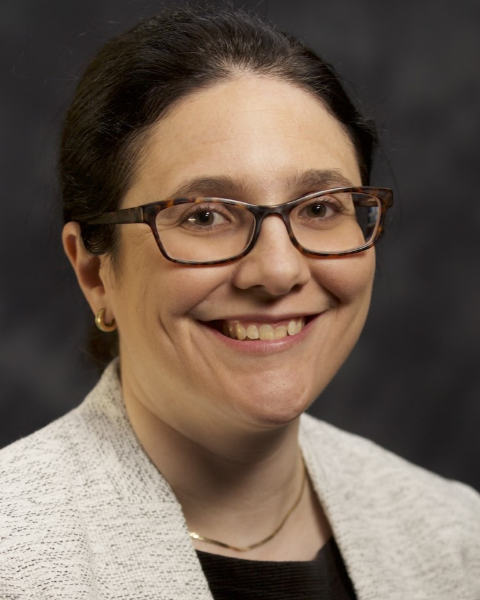Brief Oral Papers
Training and Education
"Tell Me About It, Tell Me Everything You Feel": Psychiatrist-led Wellness Check-ins for Physician Trainees

Sara Nash, MD, FACLP, DFAPA
Program Director - Fellowship in Consultation-Liaison Psychiatry
Columbia University Irving Medical Center
New York, New York- LM
Laurel Mayer, MD
Director, NYP-House Staff Mental Health Service, CUIMC
Columbia University Irving Medical Center
New York, New York - SC
Subani Chandra, MD
Program Director
Columbia University
New York, New York - AB
Allison Borowski, MD
Assistant Professor
Columbia University
New York, New York - DH
David Horowitz, MD
Associate Professor of Radiation Oncology
Columbia University
New York, New York - BS
Briana Short, MD
Assistant Professor of Medicine
Columbia University Irving Medical Center
New York, New York - SH
Sheau-Yan Ho, PhD
Assistant Professor in Medical Psychology
Columbia University Irving Medical Center
New York, New York - HP
Heather Paladine, MD
Assistant Professor of Medicine at Columbia University Irving Medical Center
Columbia University Vagelos College of Physicians and Surgeons
New York, New York - MD
Maria De Miguel, MD
Associate Professor of Medicine
Columbia Internal Medicine Residency Program
New York, New York - KB
Kristin Burkart, MD
Professor of Medicine
Columbia University Irving Medical Center
New York, New York - JM
Jasnit Makkar, MD
Assistant Professor of Radiology
Columbia University Irving Medical Center
Old Tappan, New Jersey
Presenting Author(s)
Co-Author(s)
Background/Significance: Pre-dating the COVID-19 pandemic, physician trainees have exhibited elevated rates of burnout (44-55%) and depression (25-35%) compared to the general population. Prompted by the overwhelming stress of the COVID pandemic, in 2020-2021 the New York-Presbyterian House Staff Mental Health Service (HSMHS) at Columbia University Irving Medical Center launched a pilot program to evaluate the feasibility, acceptability, and initial efficacy of 1:1 psychiatrist-run, opt out wellness check-ins for Internal Medicine (IM) residents. In 2021-2022, this pilot was expanded to include 6 additional departments and twice-yearly check-ins. Check-ins offered validation, opportunity to process challenging experiences, and enhance resilience with mental health (MH) clinicians experienced in trainee MH (2 C-L and 3 HSMHS faculty), stigma reduction and linkage to care, and innovative preliminary information in a field with little quantitative literature. Program leadership scheduled the check-ins, but MH faculty informed trainees of the appointment, including the option to opt-out. Program leadership was blind to trainee participation. Discussion/
Methods: All trainees received an IRB-approved online survey prior to and at the end of the year (EOY). Check-in participants received an online, 2-question survey shortly after the check-in. Check-in participation was not contingent on research participation.
Results: In the initial pilot, 57% of residents completed the check-in, 36% opted out, with participation equally distributed across PGY levels. The two most common opt-out reasons were engagement in therapy or preference for other wellness activities. 11% of participants were referred to the HSMHS. 96% of participants found the check-in helpful; 99% supported the initiative. In the 2021-2022 multi-departmental pilot 52% of trainees completed the first check-in, 39% completed the second, with 13% overall referred to the HSMHS. 96% of participants found the first check-in helpful, 95% the second. 96% of participants in the first check-in and 100% in the second recommended check-ins become a regular part of the curriculum. 81% felt that check-ins enhanced well-being; even among those who opted out, 87% agreed. 89% agreed check-ins were helpful to process training experiences; 82% appreciated that the check-in was scheduled for them. Ninety percent exceeded the HIGH threshold on the Perceived Stress Scale (PSS); PSS scores significantly decreased from pre- to post-survey (p=0.02), although PSS remained HIGH. Some measures of stigma improved.
Conclusion: Psychiatry-led 1:1 check-ins are both feasible and meaningfully support the well-being of physician trainees. Consultation-liaison psychiatrists, physically present in the hospital and regularly interacting with house staff, are in unique position to be leaders in field of trainee wellness.
References:
Drybye LN, Leep Hunderfund AN, Winters RC et al. The relationship between burnout and help-seeking behaviors, concerns, and attitudes of residents. Acad Med 2020 May 1; 96(5):701-708
Baker K, Sen S. Healing medicine's future: prioritizing physician trainee mental health. AMA J Ethics 2017 July 10; 18(6):604-613.
Shechter A, Diaz F, Moise N et al. Psychological distress, coping behaviors, and preferences for support among New York healthcare workers during the COVID-19 pandemic. Gen Hosp Psych 2020 Sept-Oct, 66:1-8.

